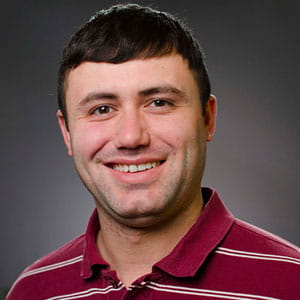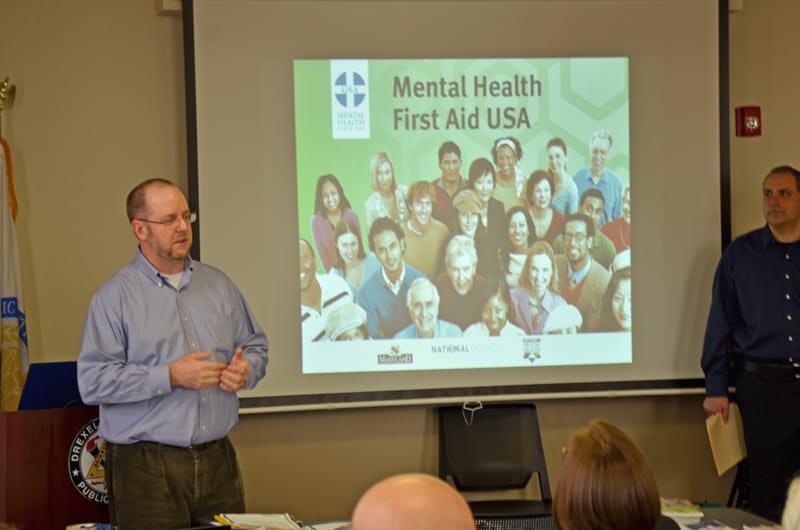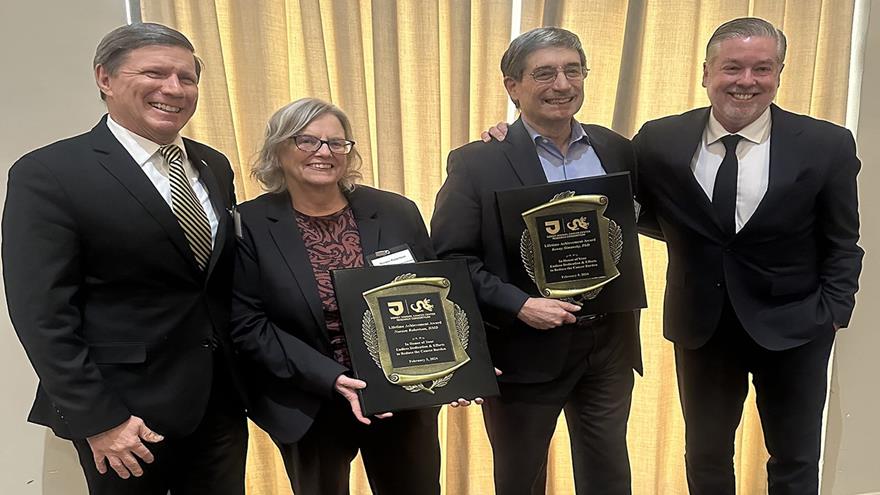Being the First Person on the Scene of a Mental Health Crisis
 By Frank Otto
By Frank Otto

When you hear the term “the first person on the scene,” it usually conjures up images of a fireman, police officer or EMT scrambling into action to save someone’s life from physical peril.
But what about the first person to notice another’s mental peril?
An initiative through Drexel’s Counseling Center made possible by a partnership with the city of Philadelphia seeks to train University employees to recognize those who are having mental health difficulties and direct them to the proper resources.
“Basically, we want people to know how to be the first person on the scene, if you will,” said Paul Furtaw, associate director of counseling services.
Annette Molyneux, dean of students for Counseling and Health Services, said faculty and staff are the “front line” when dealing with student mental health.
“We’ve had faculty and staff, advisors in particular, walk students over to the Counseling Center,” Molyneux said.
Roughly 10 percent of Drexel’s students seek some kind of service from the Counseling Center, according to Furtaw, a number on par with national averages. However, both Furtaw and Molyneux believe there is a significant number of students who are suffering on their own.
Furtaw said he’s heard many stories of faculty talking to students about missed assignments or absences from class that led to a student sharing some difficulties they’ve been having and an eventual referral.
The hope is to facilitate more of those conversations.
Furtaw described the training initiative, which is now available through the Counseling Center, as familiarizing Drexel employees with Mental Health First Aid. Its goal is to strengthen that front line of faculty and staff members and embolden them to reach out to more students who need services.
An international training program, Mental Health First Aid aims to coach trainees in identifying clues indicating potential mental health crises, how to respond to them and the proper way to refer a person to available resources.
Traditionally, discussions surrounding mental health have been touchy, so the training is designed to reduce the anxiety for those who want to offer help.
“The whole thing is de-mystifying and breaking down those barriers, identifying people in need and then making appropriate referrals,” Molyneux said.
“Typically, faculty and staff experience two challenges when referring students: One is they feel that they — and only they — have to take on all the responsibility,” Furtaw said. “The other challenge is recognizing when safety concerns trump confidentiality. Faculty and staff’s job is to keep students safe and part of what can happen is they feel they have to protect confidentiality at the expense of safety, which is erroneous.”
Additionally, the Counseling Center hopes to eradicate some myths about dealing with mental health crises.
Increasing awareness of mental health in Drexel faculty and staff and eliminating the fear of striving to help those who may be struggling is the ultimate goal.
“Sometimes folks might recognize there’s a problem but then just feel ill-equipped to speak to the student about it in an appropriate way,” Molyneux said. “What do you say to a student who you’re concerned about and how do you refer them to the right resource without offending them?”
Ultimately, Molyneux wants to give those who train in the course some language they’re comfortable with to speak to students, as well as other faculty and staff, to help identify what they may need and make a positive referral to the Counseling Center for students or Human Resources for employees.
“Really, we just want to say, ‘If you’re going through any of these issues, please avail yourself of any of these services,’” Molyneux said.
Because, in the end, being the first person on the scene is about taking action, and in these cases, it very well could save lives.
In This Article
Drexel News is produced by
University Marketing and Communications.
